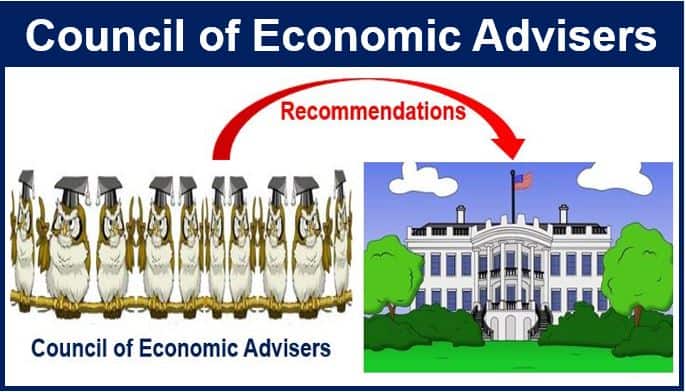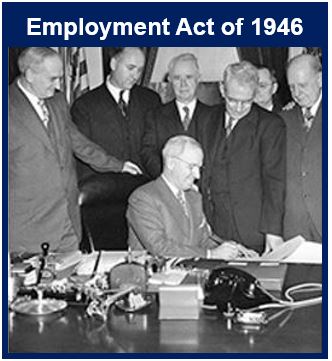The Council of Economic Advisers or CEA is a group of economic experts that the US President and the Senate appoint. It advises the President on both domestic and international economic policy. The Council of Economic Advisers provides much of the objective empirical research for the President and his or her team. It also prepares the President’s annual Economic Report.
The President nominates the Chairman of the Council of Economic Advisers. The Senate subsequently approves this person. The President appoints all CEA members. It consists of a Chairman and two Members, about twenty academic economists, and three permanent economic statisticians.
The current Chairman is Kevin Hassett. He is an economist who specializes in tax policy and co-authored the book Dow 36,000.

Janet Yellen was Chairman of President Bill Clinton’s CEA from 1997 to 1999. Ms. Yellen is the current Chair of the Board of Governors of the Federal Reserve System.
Congress established the CEA in the Employment Act of 1946. According to the White House, it has the following duties and functions:
1. To advise and assist the President in preparation of the Economic Report.
2. To collect timely and authoritative data concerning economic trends and economic development. This data must be both current and for the future. It must analyze and interpret such data in the light of the policy declared in section 2 “for the purpose of determining whether such developments and trends are interfering, or are likely to interfere, with the achievement of such policy, and to compile and submit to the President studies relating to such developments and trends.”
Economic development is more than just expanding the economy. It also involves improving people’s life expectancy, literacy rates, academic levels, and access to healthcare.
3. To evaluate the Federal Government’s programs and activities in the light of the policy declared in section 2. To determine whether those programs and activities are meeting their objectives. It must also determine to which extent they might not be. Additionally, the CEA makes recommendations on them to the President.

4. To develop and recommend to the President economic policies to avoid economic fluctuations or diminish their effects. It also helps the President promote free competitive enterprise, maintain production, purchasing power, and employment.
5. “To make and furnish such studies, reports thereon, and recommendations with respect to matters of Federal economic policy and legislation as the President may request.”
Video – Jason Furman, former CEA chairman
In this video, Prof. Furman, former CEA chairman, talks about economic volatility and how it has changed over time.
